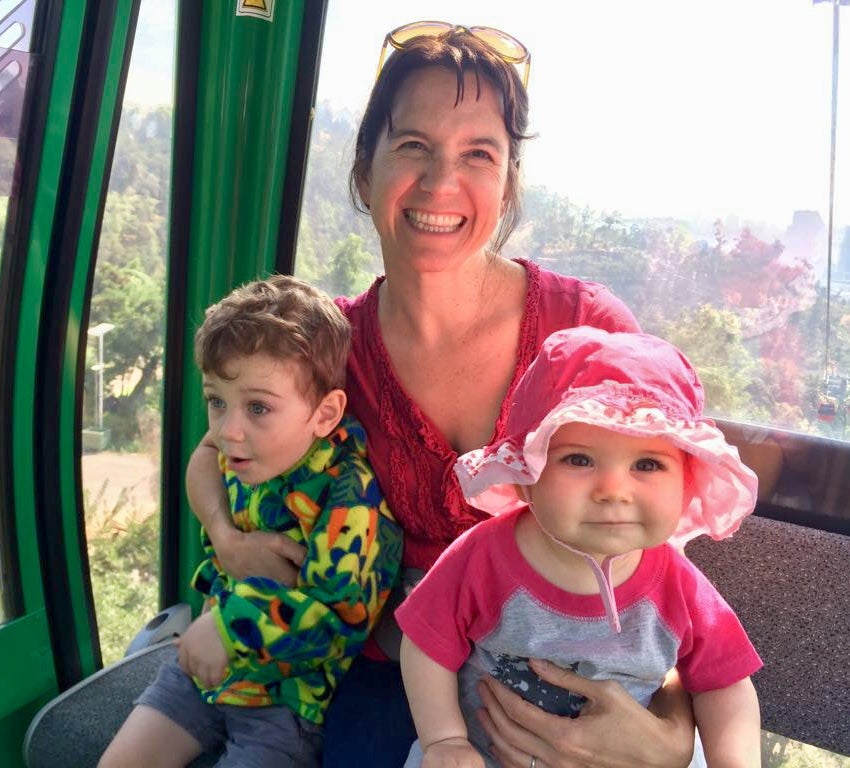 Specializations
Specializations
Latin America
Environmental History
Education
Ph.D., University of Arizona
M.A., University of Arizona
B.A., Willamette University
Professor Emily Wakild joined the faculty of the Department of History at Boise State University in 2012 as a historian of Latin America. She earned her Ph.D. in Latin American History from the University of Arizona in 2007 and a B.A. in History and Politics from Willamette University in Salem, Oregon in 1999. She lives in Boise with her husband and two young children.
Dr. Wakild’s research tries to account for the ways various Latin American societies have deliberately conserved–or chosen not to exploit–nature in different times and places. Why did some of the most unequal and diverse societies in the world find space in their political agendas to create national parks? What role did frontier experiences, scientific expeditions, and residential knowledge have in understanding and celebrating certain landscapes? What did conservation men for humans, animals, and the larger social and environmental changes of the twentieth century? At present she is working on a comparative history of transnational conservation and scientific research in Amazonian and Patagonian South America. For this work, she has been awarded several competitive awards including a National Endowment for the Humanities Research Fellowship, a National Science Foundation Scholars Award, and a Fulbright-Hays Fellowship.
Her first book, Revolutionary Parks: Conservation, Social Justice, and Mexico’s National Parks (University of Arizona Press, 2011) examines the creation of national parks during Mexico’s social revolution as part of a widespread process of social reform. The book received the Alfred B. Thomas Award for best book on a Latin American subject by the Southeastern Council on Latin American Studies, the Charles A. Weyerhauser Award for best book in forest and conservation history from the Forest History Society, and the Elinor Melville Award for the best book on Latin American environmental history from the Conference of Latin American History.
She believes in research collaboration and has recently co-authored a book on teaching with Dr. Michelle K. Berry called A Primer for Teaching Environmental History (Duke, 2018). The book promises to convene a discussion around how environmental history can be taught. With an international team of editors, she wrote and edited, The Nature State: Rethinking the History of Conservation, (London: Routledge Press, 2017) which poses a novel concept–that of the nature state–for broadly and systematically considering the global scope of conservation in the long twentieth century.
Professor Wakild teaches courses in Latin American History, including Modern Latin America and a History of Mexico, as well as courses in environmental history such as Animals in History. She also teaches the senior capstone research seminar and a graduate seminar on Science, Technology, and the Environment. She has taught three summer courses in Peru and spent the first half of 2018 in Santiago, Chile teaching courses on Patagonia and environmental history.

Contact
Office: L181
Phone: (208) 426-3529
emilywakild@boisestate.edu
Office Hours: Mon 12:00-1:00; Tues/Thurs 10:30-12:00
Teaching
History of Mexico
Animals in History
Modern Latin America
Graduate Students
Selected Scholarship
A Primer for Teaching Environmental History, edited with Michelle K. Berry
(Duke University Press, 2018)
The Nature State: Rethinking the History of Conservation, edited with Wilko Graf von Hardenberg, Matthew Kelly, and Claudia Leal
(Routledge Press, 2017)
Revolutionary Parks: Conservation, Social Justice, and Mexico’s National Parks, 1910-1940, Latin American Landscapes
(University of Arizona Press, 2011)